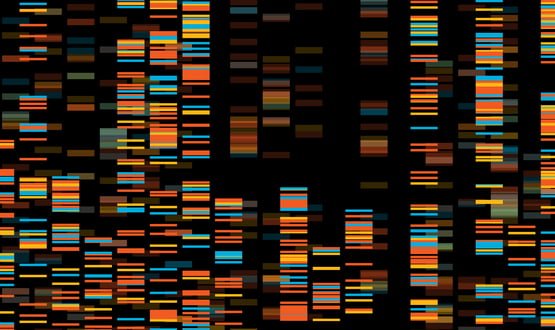Five million volunteers to have DNA analysed in new genomics projects
- 31 July 2019

Millions of NHS patients will have their genetic information analysed and used for research into predictive medicine under a new programme from Genomics England.
As part of the Accelerating Detection of Disease (ADD) programme, anonymised data from up to five million volunteers will be used to develop personalised treatments and diagnostic tools using artificial intelligence (AI).
Volunteers will have their genomes analysed to identify their risk of developing diseases like cancer or heart disease, and will receive a free personalised health report based on their DNA.
The project follows the 100,000 Genomes Project, which ran from 2013 to 2018 and led to roughly one in four participants with a rare disease receiving a diagnosis.
Health minister, Nicola Blackwood, said: “Prioritising life-saving research and innovation means we can unlock solutions to deadly conditions like cancer, dementia and heart disease – saving lives and securing the health of the next generation.
“To achieve this, we must harness the power of technology, so I am delighted with today’s investment from businesses and charities – a huge boost for healthcare innovation which will help patients lead longer, happier lives.”
Genomics can diagnose diseases more accurately and potentially earlier, allowing individuals to make lifestyle changes that could reduce the impact of disease, or avoid it entirely.
Preventative measures that keep people healthier for longer is viewed as fundamental for reducing pressure on NHS services.
The latest advancements in genomics technology mean it’s possible to combine genetic information into polygenic risk scores (PRS), which identify those at highest risk of particular diseases.
This helps clinicians provide more personalised treatments through more effective prescription medicines, and leads to better public health interventions.
The ADD programme will receive an investment of up to £160m from businesses and charities, including the the British Heart Foundation, Cancer Research UK and Alzheimer’s Research UK.
This will be supported by a £79m investment from the UK government as part of its commitment to the second Life Sciences Sector Deal, which aims to transform the early diagnosis and treatment of chronic conditions through data and AI.
Sir John Bell, lead for the UK life sciences industrial strategy, said: “The Accelerating Detection of Disease programme will put the UK at the forefront of global research into early diagnosis and help us shift the standard in healthcare forever. We have a vision to live in a world where you prevent disease rather than treat it too late.
“The ability to identify people at risk or suffering from early forms of disease with greater precision will have a profound impact on how we develop diagnostics and new ways to treat disease. I am delighted that this challenge will bring together the NHS, charities and industry to develop a truly world leading resource.”
As part of the NHS Long Term Plan, seriously ill children and adults suffering from certain rare conditions or specific cancers will be offered whole genome sequencing as part of their routine care, starting this year.
Hilary Evans, chief executive of Alzheimer’s Research UK, said: “Today, we diagnose dementia causing diseases after symptoms show, but to ensure people get the greatest benefit from future treatments, we must be able to diagnose them as soon as possible.
“Alzheimer’s Research UK is working to revolutionise how diseases like Alzheimer’s are identified and uniting the best minds in digital data and technology to draw on the full potential of the Accelerating Detection of Disease cohort.”




